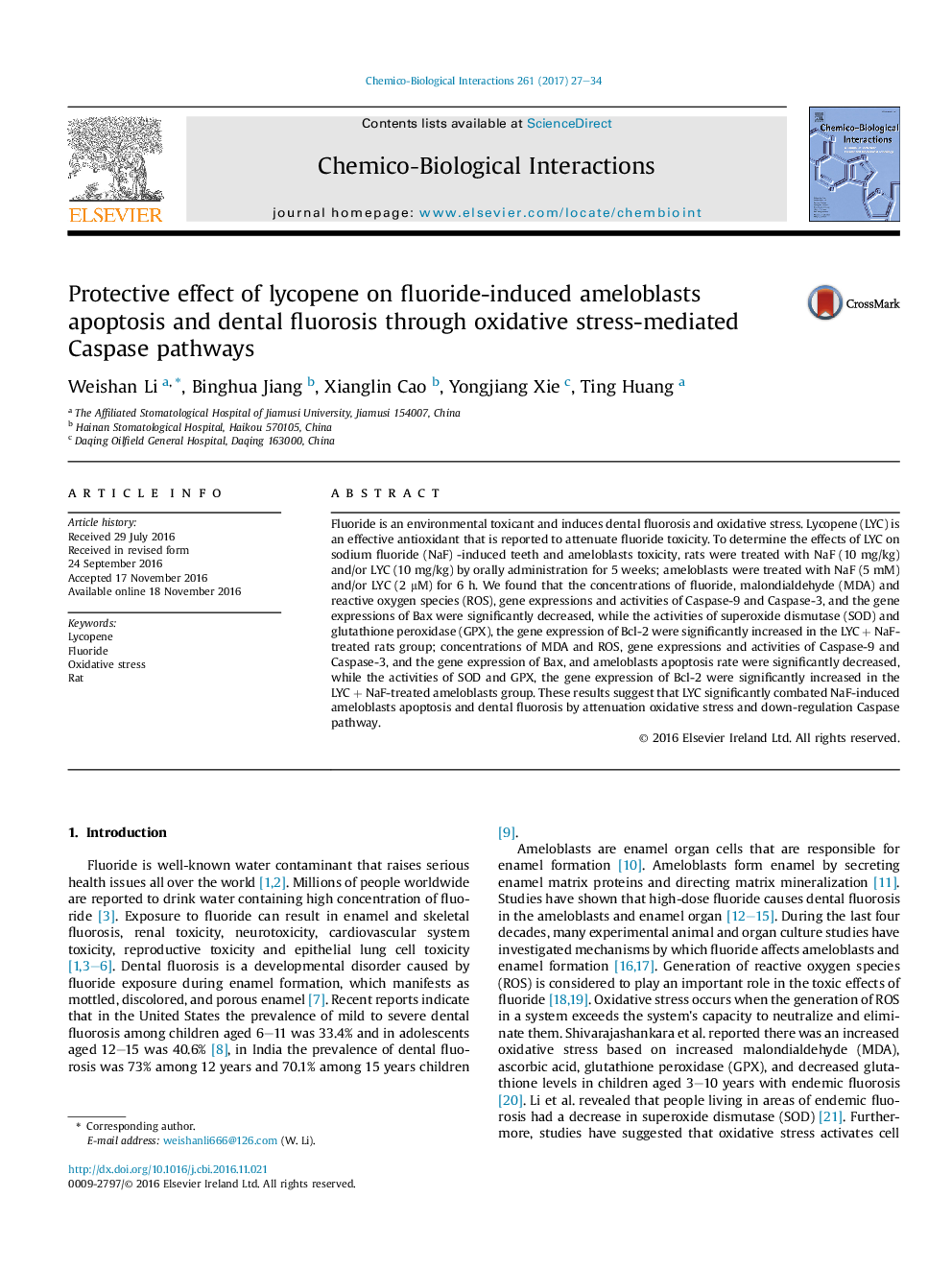| کد مقاله | کد نشریه | سال انتشار | مقاله انگلیسی | نسخه تمام متن |
|---|---|---|---|---|
| 5559423 | 1561581 | 2017 | 8 صفحه PDF | دانلود رایگان |
- LYC significantly reversed NaF-induced ameloblasts apoptosis.
- LYC attenuated NaF-induced oxidative stress in ameloblasts and incisor teeth.
- LYC down-regulated NaF-activated Caspase pathway in ameloblasts and incisor teeth.
Fluoride is an environmental toxicant and induces dental fluorosis and oxidative stress. Lycopene (LYC) is an effective antioxidant that is reported to attenuate fluoride toxicity. To determine the effects of LYC on sodium fluoride (NaF) -induced teeth and ameloblasts toxicity, rats were treated with NaF (10 mg/kg) and/or LYC (10 mg/kg) by orally administration for 5 weeks; ameloblasts were treated with NaF (5 mM) and/or LYC (2 μM) for 6 h. We found that the concentrations of fluoride, malondialdehyde (MDA) and reactive oxygen species (ROS), gene expressions and activities of Caspase-9 and Caspase-3, and the gene expressions of Bax were significantly decreased, while the activities of superoxide dismutase (SOD) and glutathione peroxidase (GPX), the gene expression of Bcl-2 were significantly increased in the LYC + NaF-treated rats group; concentrations of MDA and ROS, gene expressions and activities of Caspase-9 and Caspase-3, and the gene expression of Bax, and ameloblasts apoptosis rate were significantly decreased, while the activities of SOD and GPX, the gene expression of Bcl-2 were significantly increased in the LYC + NaF-treated ameloblasts group. These results suggest that LYC significantly combated NaF-induced ameloblasts apoptosis and dental fluorosis by attenuation oxidative stress and down-regulation Caspase pathway.
Journal: Chemico-Biological Interactions - Volume 261, 5 January 2017, Pages 27-34
